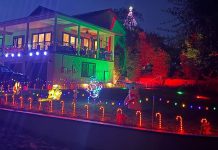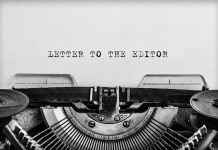Fifty years ago today, poet Allen Ginsberg shouted
”
Howl
”
in a crowded theater and set a generation on fire.
Fifty years ago today, poet Allen Ginsberg shouted “Howl” in a crowded theater and set a generation on fire.
It happened at the Six Gallery on Fillmore Street in San Francisco. Reading with Ginsberg that night were five other poets he’d invited, including then-unknown Gary Snyder. Many other future Beat Generation icons were also there, among them Jack Kerouac, Neal Cassady, and Lawrence Ferlinghetti, owner of the two-year-old City Lights bookstore. Kenneth Rexroth was the MC.
Around 11pm Ginsberg walked on stage, a little too much wine under his belt, and read those now-famous lines in public for the first time: “I saw the best minds of my generation destroyed by madness, starving hysterical naked …” as Kerouac shouted “Go! Go! Go!”
The reading at “The Six” was more than a tour de force. In a society living in the shadow of McCarthyism and the new threat of atomic annihilation, it was a moment of cultural physics, an explosion that might be called the Beat Bang. With “Rebel Without a Cause” opening that weekend in movie houses, Ginsberg’s poetic rebellion quickly became a cause celèbre.
The day after the reading Ginsberg received a telegram. “I greet you at the beginning of a great career,” Ferlinghetti wrote, echoing a letter Ralph Waldo Emerson had written 100 years earlier to Walt Whitman in praise of “Leaves of Grass.” To this Ferlinghetti added: “When do I get the manuscript?” The flattering reference was not lost on Ginsberg.
The poem was published the following year, and after a brief and unsuccessful attempt to prosecute Ferlinghetti on an obscenity charge, it quickly became a best seller. “Howl” was fixed as the seminal work of its time.
Twenty years later, Ginsberg read – it was more performance, really – at the Santa Cruz Civic. The auditorium was packed, a fragrant cloud of smoked herb wafting through the audience as people waited in subdued anticipation.
With Ginsberg on the program were Charles Bukowski, booze at the ready, and “investigative satirist” Paul Krassner, the diminutive comic Beat impresario and publisher of “The Realist,” a roiling mix of fringe culture and radical politics.
I was in the second row, stage left, and when Ginsberg entered he sat down right in front of me. With one hand pumping his harmonium, he set off on a poetic stroll through the Coney Island of his mind. Call it a chant, or perhaps a Zen sermon. His smile was fixed and dilated.
After a few minutes, a man came from off stage, knelt down next to him, and whispered in his ear:
“There’s been a bomb threat. We have to clear the building.”
Only a few of us were close enough to hear what he’d said, and it wasn’t immediately clear that Ginsberg had understood what he’d just been told. His expression didn’t change, and for a good 30 seconds or more, the poem, if that’s what it was, didn’t either – which is to say, the more it changed, the more it stayed the same.
Even though we suspected a prank, what Ginsberg did next seems, in retrospect, quite remarkable.
As the harmonium droned, its pitch unchanged, the chant’s imagery slowly, steadily wandered off in a new direction. The fantastic gave way to the real, but the segue was so imperceptible, so seamless, that right up until the moment when Ginsberg gently suggested to the audience that everyone should leave in an orderly fashion, no one realized where he’d been leading them.
Extemporaneous verse had morphed into a poem about, yes: a bomb threat.
Everyone stood up and, calmly following the poet’s instructions, filed out the doors.
Who was this composed Ginsberg? Could this be the poet who, 20 years earlier, had raged about “angry fixes” and an indifferent society whose best minds had “the absolute heart of the poem of life butchered out of their own bodies”?
It’s true that we had, even by then, become so inured to rough language and images that “Howl” no longer shocked. But “Howl”‘s brutal path to revelation had always been just one side of Ginsberg’s genius. Quixotic religious and intellectual explorations had made him a more complete, nuanced poet than the legacy of “Howl,” with its apocalyptic visions, suggests. Ginsberg’s poetry could burn down the house, but that night in Santa Cruz, the angelheaded hipster showed how it could also guide you to safety.









